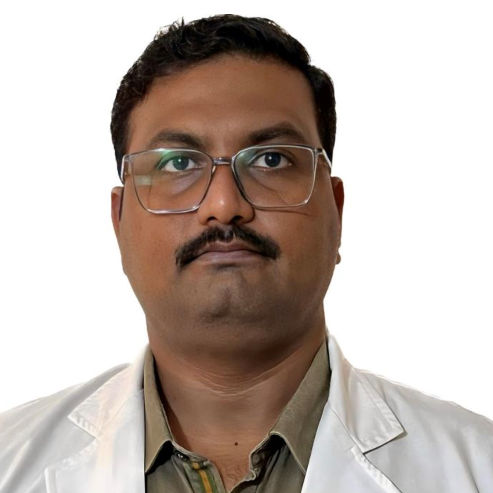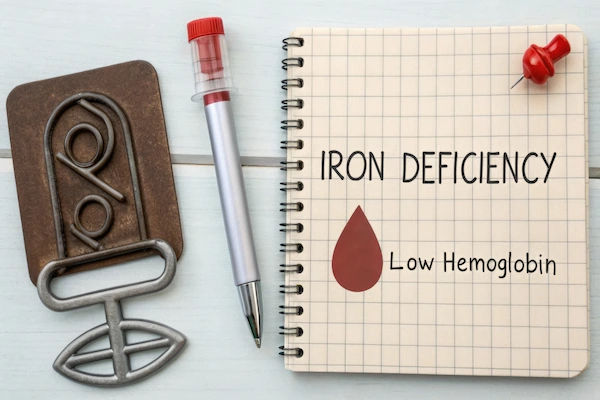Symptoms, Treatment, and Causes of Hypoxemia
Learn about hypoxemia, a condition marked by low oxygen levels in the blood. Explore its symptoms, causes, and available treatment options to manage and improve breathing health.

Written by Dr. J T Hema Pratima
Reviewed by Dr. D Bhanu Prakash MBBS, AFIH, Advanced certificate in critical care medicine, Fellowship in critical care medicine
Last updated on 13th Jan, 2026

Introduction
Hypoxemia is a medical condition where the oxygen levels in your blood drop below normal. This can make you feel short of breath, tired, or even confused. If left untreated, it can lead to serious health complications. But don’t worry, understanding the symptoms, causes, and treatment options can help you manage this condition effectively.
What is Hypoxemia?
Hypoxemia occurs when your blood doesn’t carry enough oxygen to meet your body’s needs. Oxygen is essential for every cell in your body, so low oxygen levels can affect your heart, brain, and other organs.
Consult a Pulmonologist for the best advice
Common Symptoms of Hypoxemia
The signs of hypoxemia can vary depending on how severe it is. Some common symptoms include:
Shortness of breath (even with mild activity)
Rapid breathing
Fast heartbeat
Coughing or wheezing
Bluish tint on lips, fingers, or toes (called cyanosis)
Confusion or difficulty concentrating
Headaches
Feeling extremely tired
If you experience any of these symptoms, especially if they worsen over time, it’s important to seek medical help.
What Causes Hypoxemia?
Several conditions can lead to low oxygen levels in the blood. Some common causes include:
1. Lung Diseases – Conditions like asthma, chronic obstructive pulmonary disease (COPD), pneumonia, or pulmonary fibrosis can make it hard for your lungs to absorb enough oxygen.
2. Heart Problems – Heart failure or congenital heart defects can affect how oxygen-rich blood circulates in your body.
3. High Altitudes – At higher elevations, the air has less oxygen, which can lead to temporary hypoxemia (like altitude sickness).
4. Sleep Apnoea – This condition causes pauses in breathing during sleep, reducing oxygen levels.
5. Anaemia – Low red blood cell count means less oxygen is carried in the blood.
6. COVID-19 or Other Infections – Severe respiratory infections can reduce oxygen absorption.
How is Hypoxemia Diagnosed?
If you suspect hypoxemia, a doctor may perform the following tests:
Pulse Oximetry – A small device clipped to your finger measures oxygen saturation (SpO2). Normal levels are usually 95% or higher.
Arterial Blood Gas (ABG) Test – A blood sample from an artery checks oxygen and carbon dioxide levels.
Chest X-ray or CT Scan – Helps identify lung or heart problems.
Pulmonary Function Tests – Measures how well your lungs work.
If you're experiencing symptoms, you can book a pulse oximetry test or consultation with a specialist on Apollo24|7 for quick and accurate diagnosis.
Treatment Options for Hypoxemia
Treatment depends on the underlying cause and severity. Common approaches include:
1. Oxygen Therapy
If oxygen levels are very low, supplemental oxygen may be given through a mask or nasal tubes.
2. Medications
Bronchodilators (for asthma or COPD) help open airways.
Antibiotics (if infection is the cause).
Steroids to reduce lung inflammation.
3. Lifestyle Changes
Quit Smoking – Smoking damages lungs and worsens oxygen levels.
Exercise Regularly – Improves lung and heart function (but consult a doctor first).
Maintain a Healthy Weight – Obesity can strain breathing.
4. Breathing Techniques
Pursed-lip breathing (inhale through the nose, exhale slowly through pursed lips) helps improve oxygen intake.
5. Treating Underlying Conditions
Managing heart disease, sleep apnoea, or anaemia can improve oxygen levels.
When to See a Doctor?
Seek immediate medical attention if you:
Have severe shortness of breath.
Experience sudden confusion or dizziness.
Notice bluish lips or fingertips.
Early diagnosis and treatment can prevent complications like organ damage.
Final Thoughts
Hypoxemia can be concerning, but with the right care, it can be managed effectively. If you or a loved one experience symptoms, don’t ignore them; get checked early.
Consult a Pulmonologist for the best advice
Consult a Pulmonologist for the best advice

Dr. P Sravani
Pulmonology Respiratory Medicine Specialist
3 Years • MBBS, MD
Visakhapatnam
Apollo Clinic Vizag, Visakhapatnam

Dr. Kohena Roy
Pulmonology Respiratory Medicine Specialist
8 Years • MBBS, MD Respiratory Medicine
Rajpur Sonarpur
SRL Diagnostics Pvt. Ltd, Rajpur Sonarpur
Dr. Ambuj Kumar
Pulmonology Respiratory Medicine Specialist
10 Years • MBBS, MD (Pulmonary Medicine)
New Delhi
Smriti Gynaecology and Lung Centre, New Delhi

Dr Rakesh Bilagi
Pulmonology Respiratory Medicine Specialist
10 Years • MBBS MD PULMONOLOGIST
Bengaluru
Apollo Clinic, JP nagar, Bengaluru

Dr. E Prabhakar Sastry
General Physician/ Internal Medicine Specialist
40 Years • MD(Internal Medicine)
Manikonda Jagir
Apollo Clinic, Manikonda, Manikonda Jagir
(175+ Patients)




